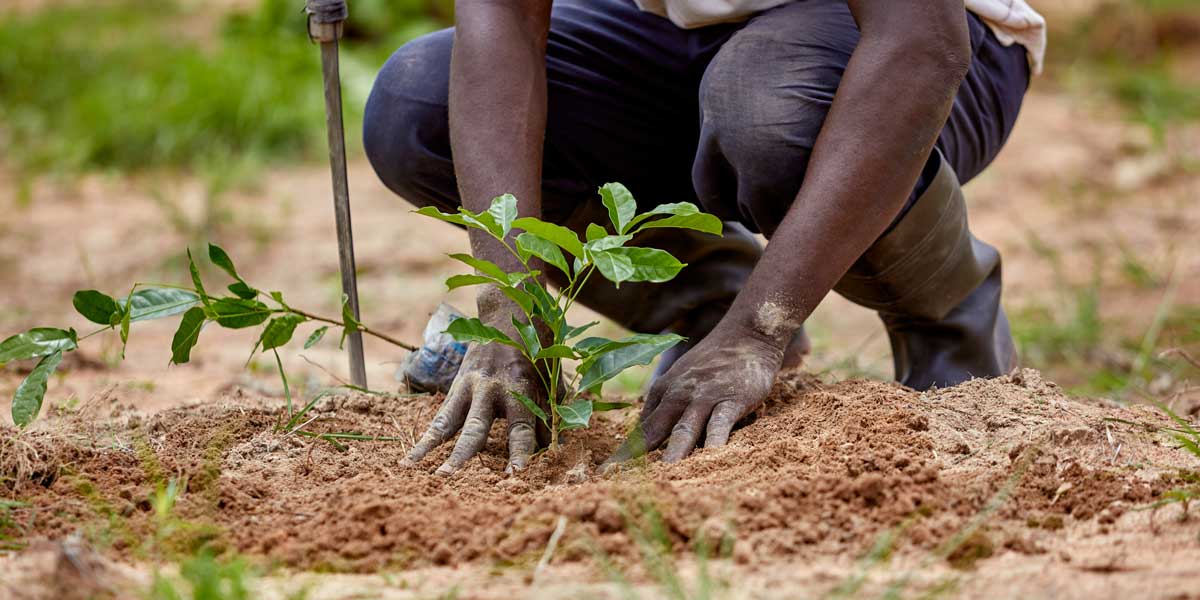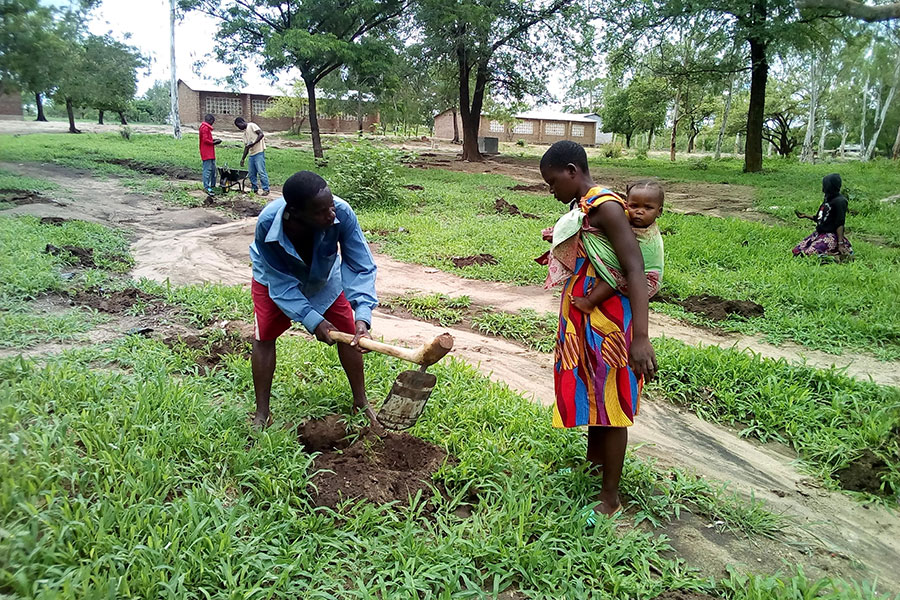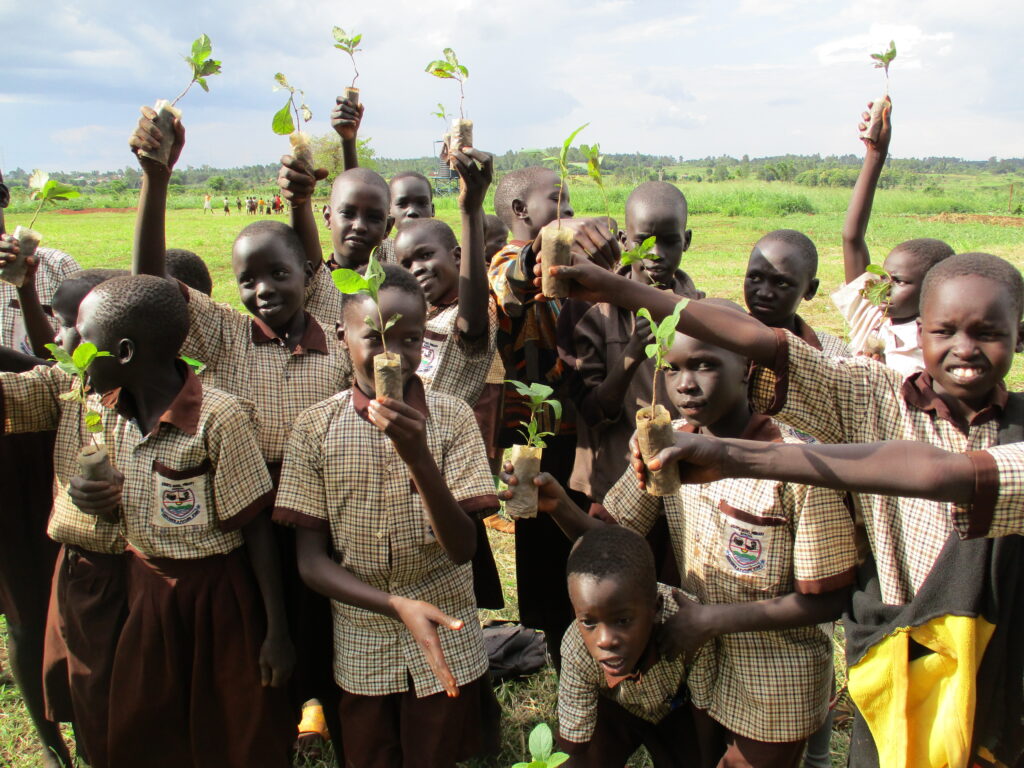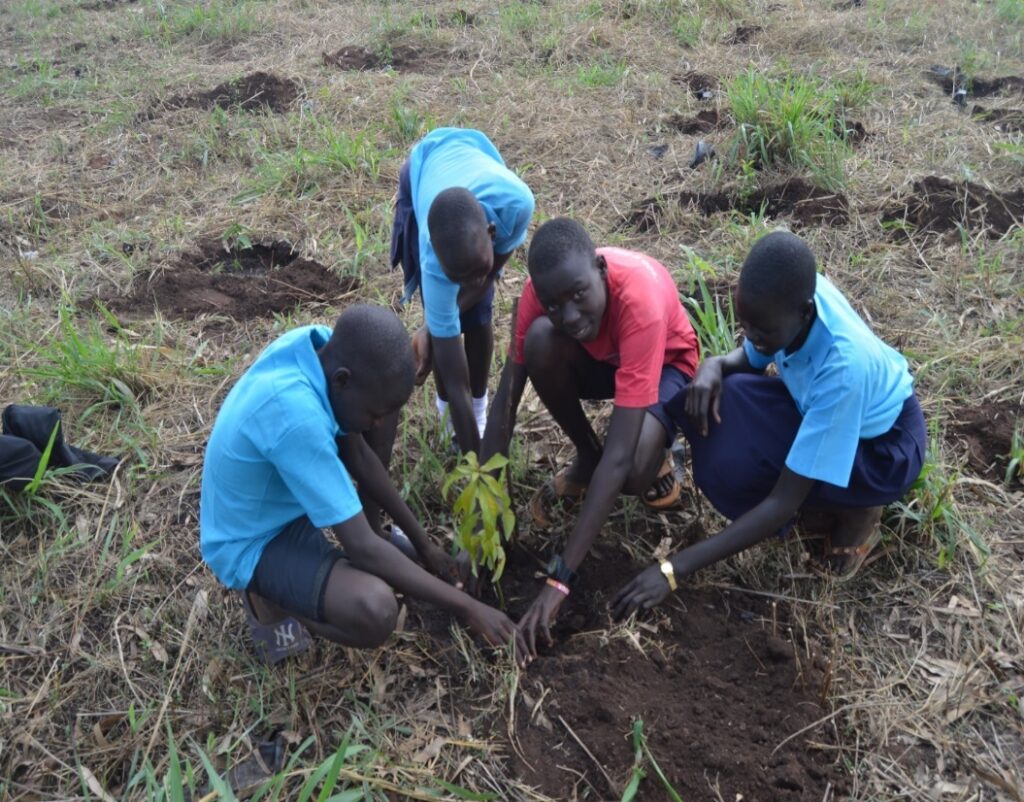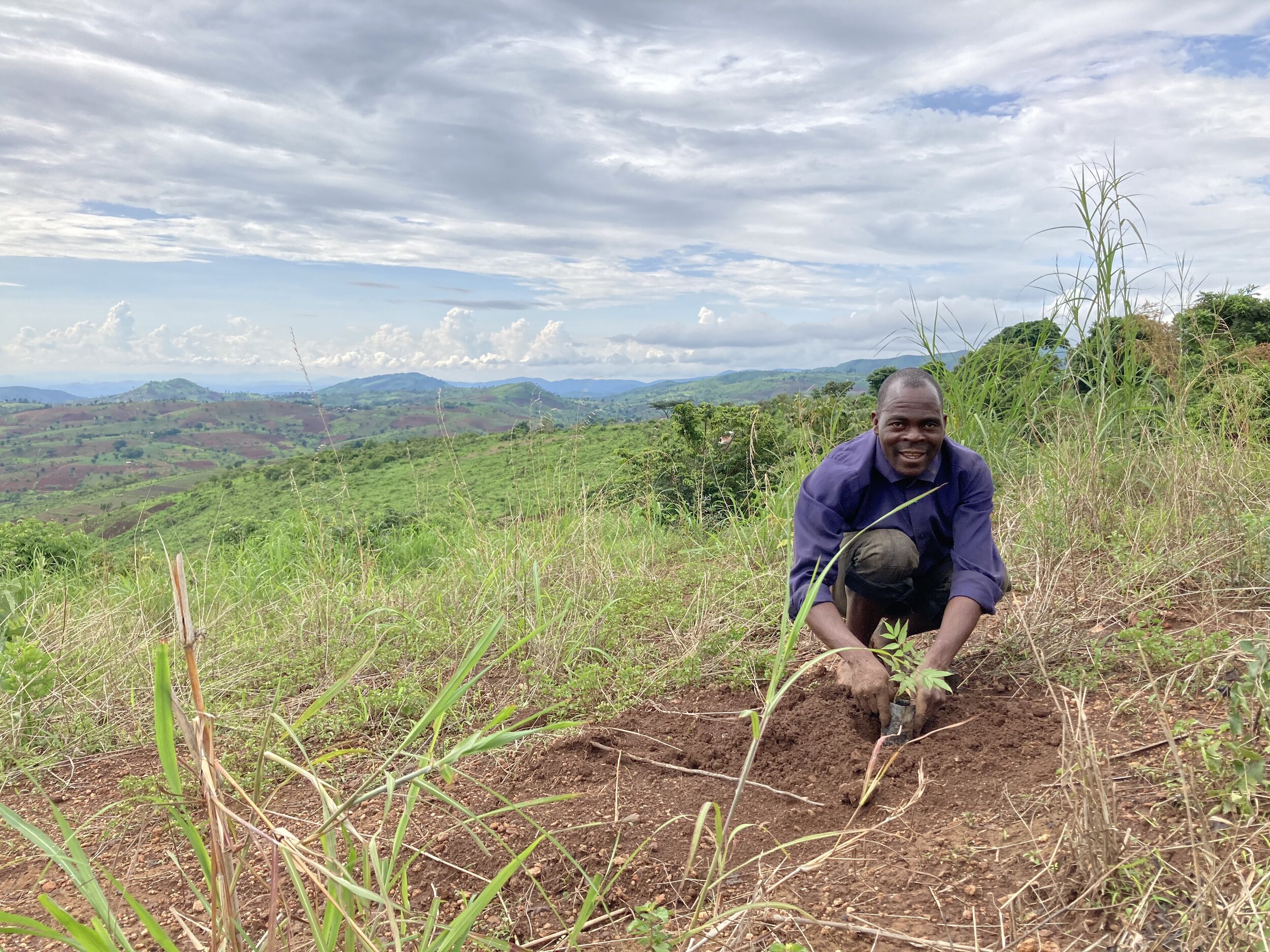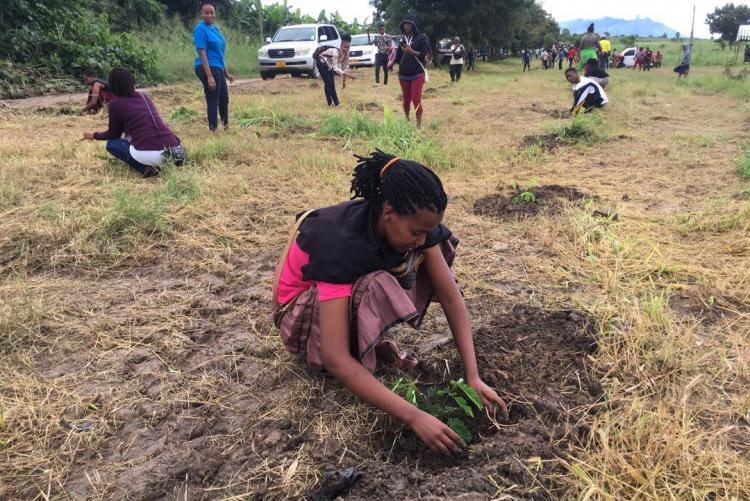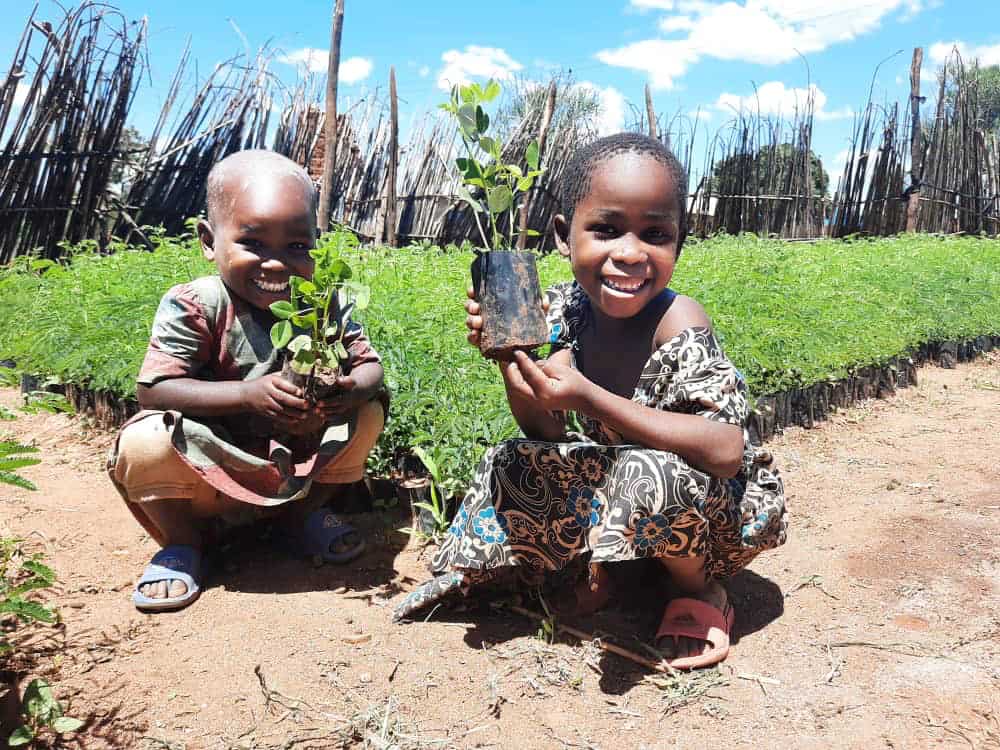A Greener Tomorrow: Pivot of Grace’s Environmental Conservation Efforts in Uganda
Uganda is blessed with rich biodiversity, lush landscapes, and natural resources that sustain the lives of millions. However, in recent years, environmental degradation, deforestation, and climate change have begun to threaten the very ecosystems that communities depend on. With increasing pressure on natural resources and rising environmental challenges, conservation efforts are more urgent than ever.
Pivot of Grace is stepping up to the challenge with its Environmental Conservation Initiatives, aimed at protecting Uganda’s environment while fostering sustainable livelihoods for communities. This article explores the various ways Pivot of Grace is working to secure a greener future for Uganda.
The Environmental Crisis Facing Uganda
Uganda’s environment is under threat from multiple fronts. Deforestation, unsustainable agricultural practices, and pollution have taken a toll on the country’s natural landscapes. The consequences are severe—land degradation, reduced agricultural yields, loss of biodiversity, and water scarcity are already impacting communities, particularly in rural areas.
James, a farmer from western Uganda, shares his concerns: “The weather is no longer predictable. We used to know when to plant and harvest, but now the rains come too late or not at all. Our land is drying up, and it’s getting harder to feed our families.”
Pivot of Grace recognizes that environmental conservation is not just about protecting nature; it’s about ensuring that Uganda’s people can continue to thrive in harmony with the environment. By integrating conservation into its community-based work, Pivot of Grace is leading the way toward sustainable development.
-
1. Reforestation and Tree Planting
One of Pivot of Grace’s most impactful conservation efforts is its Reforestation and Tree Planting Program. Uganda has experienced significant deforestation in recent decades due to the demand for timber, fuel, and agricultural land. This deforestation has resulted in soil erosion, loss of wildlife habitats, and increased carbon emissions.
To combat this, Pivot of Grace works with local communities to plant trees and restore degraded forests. Through educational workshops and tree-planting campaigns, the organization encourages families to participate in reforestation efforts and understand the long-term benefits of preserving Uganda’s forests.
Mary, a local schoolteacher, talks about the program’s impact: “We’ve planted trees around our school with Pivot of Grace’s help. The children have learned about the importance of trees for our environment and future. It’s not just about planting today; it’s about securing tomorrow.”
By focusing on native species and sustainable forestry practices, Pivot of Grace ensures that reforestation efforts benefit both the environment and the local economy.
-
2. Sustainable Agriculture: Balancing Food Security with Conservation
Many of Uganda’s environmental challenges stem from unsustainable agricultural practices. Farmers, particularly in rural areas, often rely on traditional farming methods that can lead to overgrazing, soil degradation, and deforestation. Pivot of Grace is working to change that through its Sustainable Agriculture Program.
The program teaches farmers eco-friendly farming techniques, such as crop rotation, agroforestry, and organic farming, that increase yields while reducing environmental impact. By incorporating trees and other plants into farmland, farmers can enhance soil fertility, improve water retention, and create a more resilient agricultural system.
John, a participant in the program, explains how it has transformed his farm: “Before Pivot of Grace’s training, my soil was becoming less productive, and I was struggling to grow enough food. Now, I’ve learned how to take care of the land, and my crops are doing much better.”
Through sustainable agriculture, Pivot of Grace is helping communities balance food security with environmental stewardship.
-
3. Water Conservation and Clean Energy
Water scarcity is becoming an increasingly serious issue in Uganda, with many regions facing droughts and unreliable rainfall. Pivot of Grace’s Water Conservation Initiatives aim to address this by promoting rainwater harvesting, water-saving irrigation techniques, and the restoration of natural water sources.
Additionally, Pivot of Grace is working to promote clean energy solutions such as solar power and energy-efficient cooking stoves. By reducing reliance on firewood and charcoal, these initiatives not only protect forests but also improve air quality and reduce health risks associated with indoor air pollution.
Nabirye, a mother of five, shares how clean energy has made a difference in her home: “We used to spend hours collecting firewood, and the smoke from the stove was bad for our health. Now, with the energy-efficient stove from Pivot of Grace, we use less wood, and my children are healthier.”
-
4. Environmental Education: Empowering the Next Generation
Pivot of Grace believes that lasting environmental change begins with education. The organization is committed to teaching future generations about the importance of conservation through its Environmental Education Programs. These programs are designed for both children and adults, teaching participants about biodiversity, conservation practices, and how they can contribute to protecting the environment.
In schools, Pivot of Grace runs environmental clubs where students learn about eco-friendly practices and engage in activities like tree planting, recycling, and wildlife protection. The goal is to create a generation of environmentally conscious leaders who will continue to advocate for conservation throughout their lives.
Ruth, a 12-year-old member of one of these clubs, talks about what she’s learned: “I didn’t know how important it was to take care of the environment until we started the club. Now, I’m telling my family and friends to plant trees and keep our village clean.”
The Power of Community in Conservation
One of Pivot of Grace’s greatest strengths is its community-centered approach to environmental conservation. By involving local leaders, families, and schools in its initiatives, the organization ensures that conservation efforts are not only effective but also sustainable. Communities are not simply passive beneficiaries—they are active participants in creating a greener future.
The Village Conservation Committees established by Pivot of Grace play a key role in monitoring environmental projects, ensuring that resources are used sustainably, and promoting eco-friendly practices within their communities.
Challenges and the Road Ahead
While Pivot of Grace has made significant strides in its environmental conservation efforts, challenges remain. The demand for natural resources continues to grow, and climate change presents new and unpredictable threats. Funding limitations also constrain the organization’s ability to scale its programs and reach more communities in need.
However, Pivot of Grace is determined to continue its mission of protecting Uganda’s environment while empowering communities to live sustainably. With continued support from donors, volunteers, and partners, the organization is poised to expand its conservation efforts and ensure that Uganda’s natural beauty and resources are preserved for future generations.
A Greener Tomorrow for Uganda
Pivot of Grace’s environmental conservation initiatives are not just about protecting nature—they are about ensuring that Uganda’s communities can continue to thrive in harmony with the environment. By addressing deforestation, promoting sustainable farming, and educating the next generation, Pivot of Grace is paving the way for a greener, more sustainable future.
Together, we can build a tomorrow where Uganda’s natural beauty and resources are preserved for generations to come.

